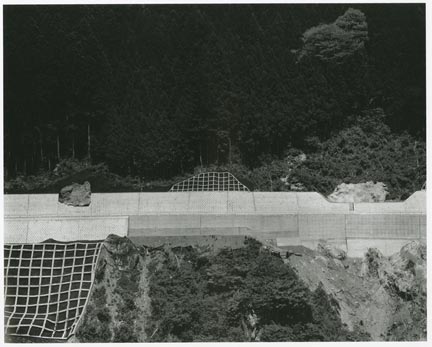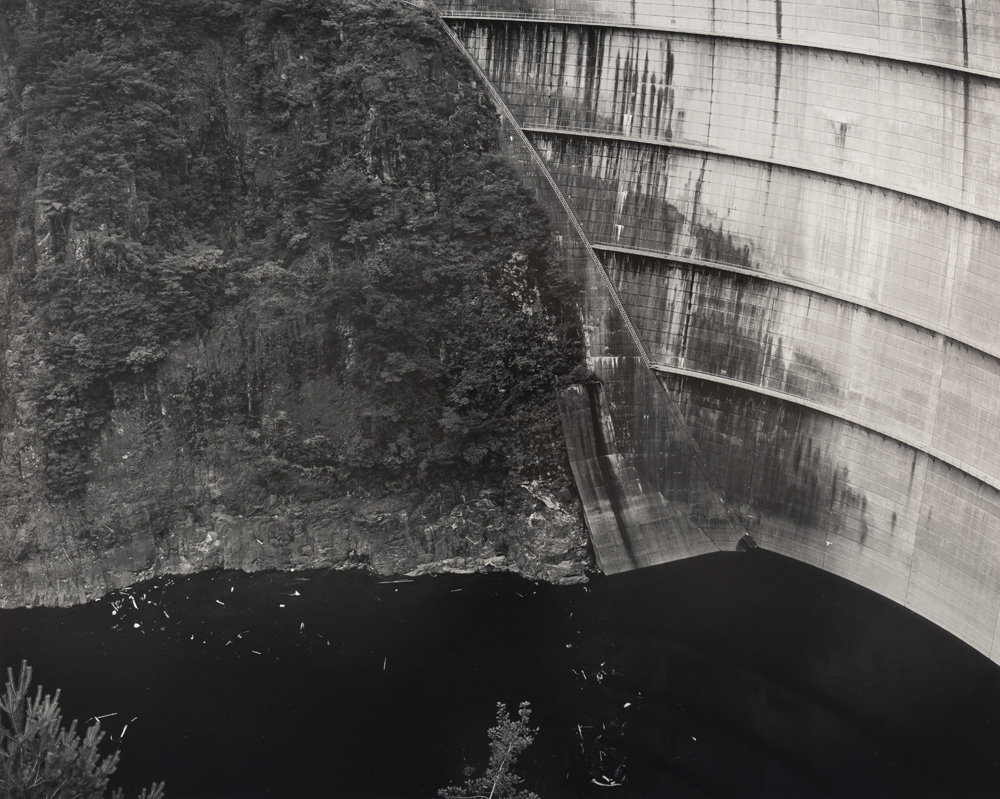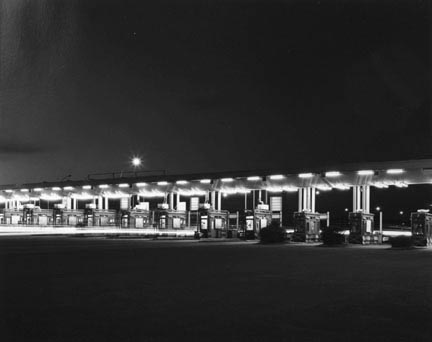About the Photographer
Shibata, Toshio
Japanese, b.1949
Early in his career, Toshio Shibata used a large format camera with black and white film to photograph a number of Japan's expressways at night (1982-86). These atmospheric images of rest-stop service areas and tollbooth plazas, including Totsuka Interchange, Daisan Kaihin Expressway, Japan (1982), show the preliminary signs of Shibata's interest in manmade constructions, along with an emerging form of Shibata's artistic sensibility: beautifully printed, meticulously detailed, yet minimal images imbued with a sense of tranquility. In a 2008 interview Shibata described the development of his early work: “[In] Tokyo I felt that there was too much chaos. I was trying to find something common, like a highway, something that is the same all over the world. Many times I found that while driving in Belgium I could have been in Japan. I wanted to use this sensation in my work, so I started taking night photographs on highways… It was travelling around Japan that I finally found my subject: infrastructure.â€
These early photographs anticipate Shibata’s better-known photographs of civil engineering projects throughout Japan. His representations of dams, roadways, and retaining walls each create a visual contrast between the irregular forms of the natural landscape and the rigid geometry and tessellating patterns of the manmade structures. They impart a grand, if often ambiguous, sense of scale while balancing abstraction with representation. As curator Marcia Tucker observes in the artist's monograph Landscapes (1996, 2000), "In the tradition of the 'New Topographics' photographers, Shibata is photographing the encounter between nature and encroaching civilization, but with a Japanese sensibility." His photographs are not concerned with a struggle between man and nature, but rather they respond to a more fluid give-and-take between the two: the engineers alter the landscape, but in doing so they anticipate that nature will respond and adjust in turn.
Toshio Shibata was born in Tokyo in 1949. He studied painting and printmaking at Tokyo National University of Fine Arts and Music, completing a BFA and an MFA (1972, 1974). He received a fellowship from the Belgian Ministry of Education and Dutch Culture (1975 and 1976) to study at the Royal Academy of Ghent, Belgium, during which time he began to work with photography. In 1995, the Museum of Contemporary Art, Chicago, commissioned Shibata to photograph infrastructure in the United States, resulting in an exhibition at the Museum of Contemporary Art (October 11, 1997 - January 4, 1998) and a monograph of the work (Toshio Shibata, 1998). Other monographs include Landscape (Nazraeli Press, 1996, 2000), Dam (Nazraeli Press, 2004), Landscape 2 (Nazraeli Press, 2008), and Still in the Night (Soh Gallery, Tokyo, 2008). Shibata’s work has been exhibited and collected internationally. He lives in Kamakura City, Japan.



